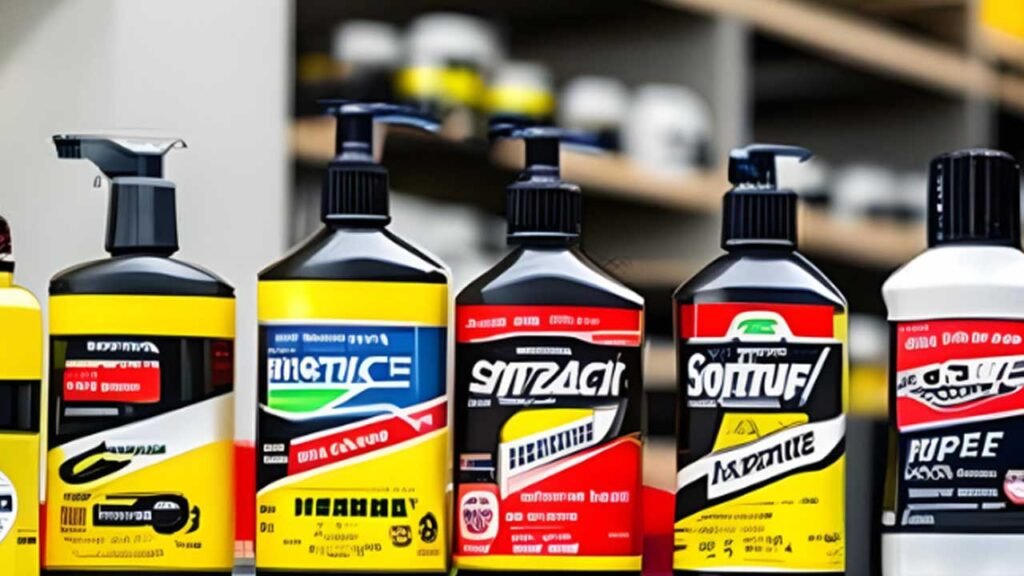Disclaimer: We may earn affiliate commission from qualifying purchases at no extra cost to you.
Yes, you can mix different brands of synthetic motor oil. Synthetic oils are chemically engineered to be compatible with each other, so mixing does not cause any harm to the engine. When changing your oil it is safe to top off with a different brand if needed and this will not impact the performance of your vehicle’s engine.
In fact, many mechanics recommend topping off with a quart or two of a different brand as they often have slightly different formulations which can help improve overall lubrication and protection for the engine over time.
- Check the viscosity ratings: Before mixing different brands of synthetic motor oil, you should check the viscosity ratings on both bottles to make sure they’re compatible
- The most common rating is SAE 5W-30 or 10W-30, but other versions are available for specific vehicles and climates
- Pour in one bottle of oil: Once you have identified that both oils are compatible with each other, open up one container and pour it into a clean bucket or container with a lid
- 3
- Add the second bottle of oil: Open up your second bottle of synthetic motor oil and slowly add it to the first container until you reach your desired quantity level (e, 2 quarts)
- Make sure to mix them together well as you add more oil from either brand so that they become completely combined before adding any additional amounts 4
- Test for compatibility: To ensure there will be no negative effects when mixing two brands of synthetic motor oil, test out an ounce or two on a dipstick after pouring everything together in its destination vessel such as an engine crankcase or transmission housing depending on where the lubricant will be used
- If all goes well, continue pouring until reaching your desired amount
WHY YOU SHOULD NOT MIX THE BEST SYNTHETIC ENGINE OILS MOBIL 1 AMSOIL CASTROL SHELL ENGINE DAMAGE?
Can You Mix Different Brands of 5W30 Oil ?
Yes, you can mix different brands of 5W30 oil. This type of oil is made to a specific viscosity standard, so whether it’s from brand A or brand B, it should be compatible and provide the same level of protection for your engine. However, if you are using synthetic oils with different additives and detergents in each one then mixing them could cause unwanted buildup over time.
It may be best to use one particular brand for all your oil changes instead of mixing multiple brands together.
Can You Mix Different Brands of Oil With the Same Weight ?
Yes, you can mix different brands of oil with the same weight. This is because all motor oils have similar additive packages and base stocks regardless of brand, so it is generally safe to combine two different types of oil as long as they are both rated for the same weight. However, it’s important to note that mixing two different oils may cause some performance issues due to compatibility issues between additives in each product; therefore, it’s always best practice to check your vehicle manufacturer’s recommendations before doing any type of oil blend.
Topping Up Engine Oil With Different Brand
When topping up engine oil, it is best to use the same brand and type of oil that is already present in the engine. While using a different brand or type of oil will not necessarily damage your engine, mixing oils may lead to compatibility issues that could reduce performance. To ensure optimal performance and longevity of your vehicle, stick with one specific brand and grade when refilling your engine’s oil.

Are All Brands of Synthetic Oil the Same?
No, all brands of synthetic oil are not the same. They may look the same and be marketed as a single “product”, but there are actually many differences between different types of synthetic oils. Synthetic oil can be formulated with different base oils, additives, viscosity modifiers and other components that affect its performance characteristics.
Different formulations provide different levels of protection against wear, heat and friction while also providing varying levels of fuel economy benefits. Additionally, some manufacturers use proprietary blends or add-in packages that make their products unique in terms of performance qualities and cost savings when compared to others on the market. Ultimately when selecting an engine oil you should research what is available from various brands to ensure you find one that matches your specific needs for temperature range, oxidation stability, fuel economy etc., rather than simply assuming they all offer the same advantages because they have been labeled “synthetic”.
Can You Mix Different Grades of Synthetic Motor Oil?
When it comes to motor oil, one of the most common questions people have is whether you can mix different grades of synthetic motor oil. The answer is yes, but there are a few important considerations that should be taken into account before doing so. First and foremost, mixing different grades of synthetic motor oils could potentially cause incompatibility issues between them and your engine or other components in your vehicle.
Secondly, blending two synthetics with different levels of viscosity may not provide the benefits desired from either grade as they may cancel each other out. Lastly, if you do decide to mix two synthetics together make sure you use a filter designed for synthetic blends as regular filters might not be able to properly remove contaminants from the blend and lead to further problems down the road.
Conclusion
In conclusion, mixing different brands of synthetic motor oil is generally not recommended as it has the potential to void engine warranties or cause damage. However, when done properly with an understanding of the risks involved, using multiple brands of synthetic motor oil can be beneficial in certain cases. It is important that you consult your vehicle manual and research thoroughly before doing so for the best results and safety.

Meet Jeremy E. Hendley, a seasoned product review expert whose passion for technology, innovation, and consumer empowerment has propelled him to the forefront of the industry. With a keen eye for detail and an insatiable curiosity about the latest gadgets and innovations, Jeremy has become a trusted voice in the realm of product reviews.







